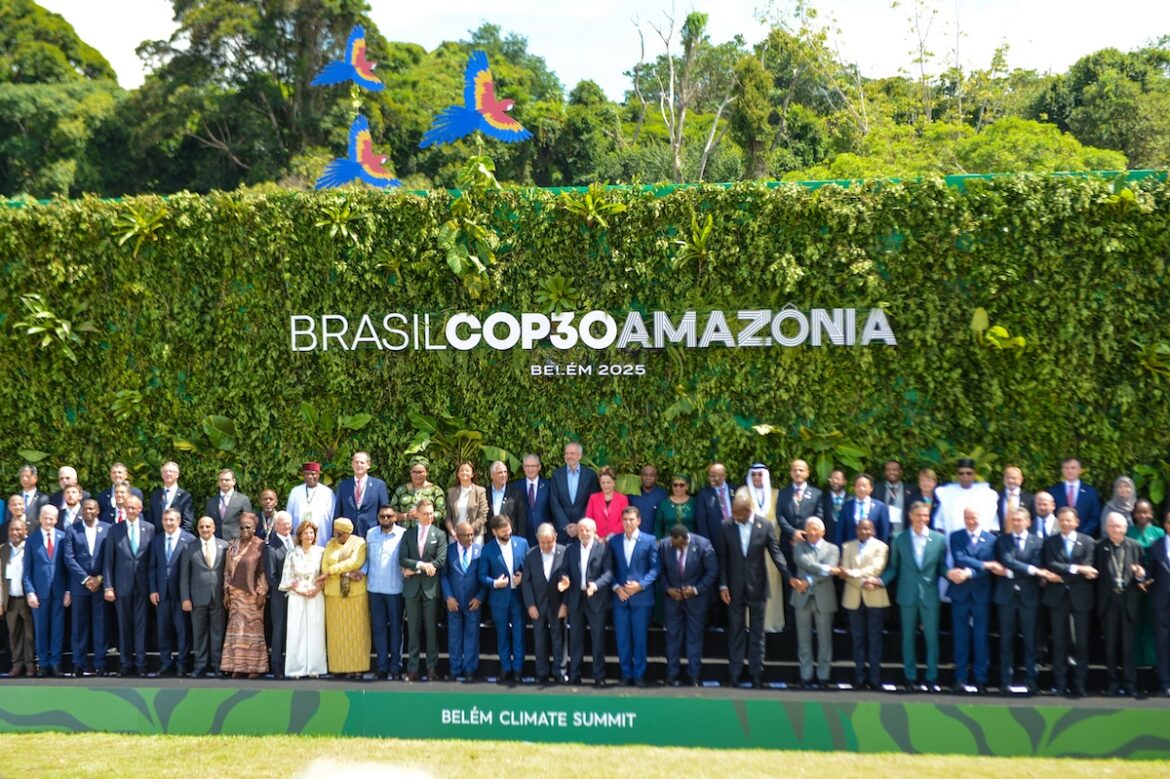VATICAN CITY (CNS) — “If you want to cultivate peace, care for creation,” Pope Leo XIV told global leaders attending the U.N. Climate Conference in Brazil.
As the international community rightly focuses on resolving war and conflict, countries must recognize that “peace is also threatened” by climate change and environmental destruction, the pope said in a message to the Leaders Summit of COP30 in Belem, Brazil.
Threats to peace are heightened “by a lack of due respect for creation, by the plundering of natural resources and by a progressive decline in the quality of life because of climate change,” said the message, read to the assembly Nov. 7 by Cardinal Pietro Parolin, Vatican secretary of state and head of the Vatican delegation to COP30.
Pope Leo quoted Pope Benedict XVI’s message for World Peace Day 2010: “The quest for peace by people of goodwill surely would become easier if all acknowledge the indivisible relationship between God, human beings and the whole of creation.”
Climate change, pollution and the destruction that follows the thoughtless exploitation of natural resources have a global impact, Pope Leo said, and they “endanger the lives of everyone on this planet.”
Pope Leo also quoted St. John Paul II’s message for World Peace Day 1990, which said that “the ecological crisis ‘is a moral issue’ and, as such, it ‘reveals the urgent moral need for a new solidarity, especially in relations among the developing nations and those that are highly industrialized.'”
“Tragically,” Pope Leo said, “those in the most vulnerable situations are the first to suffer the devastating effects of climate change, deforestation and pollution. Caring for creation, therefore, becomes an expression of humanity and solidarity.”
The pope asked the global leaders gathered in Brazil to work together to achieve a concrete plan that puts “the sacredness of life, the God-given dignity of every human being and the common good at its center.”
“Regrettably,” he said, “we observe political approaches and human behaviors that go in the opposite direction, characterized by collective selfishness, disregard for others and shortsightedness.”
The U.S. government was not represented at COP30 because U.S. President Donald Trump withdrew the country from the Paris Agreement adopted in 2015 at the U.N. Climate Change Conference, also known as COP21.
Quoting a homily he gave in July, Pope Leo said, “‘In the midst of a world that is in flames, as a result of both global warming and armed conflicts,’ this Conference should become a sign of hope, through the respect shown to the views of others in the joint endeavor to search for common language and consensus, while putting aside selfish interests, bearing in mind the responsibility for one another and for future generations.”
The pope prayed for an “ecological conversion” that would include recognizing the need for a “new human-centered international financial architecture that ensures all countries, especially the poorest and those most vulnerable to climate disasters, can reach their full potential and see the dignity of their citizens respected.”
Greater efforts also need to be made to promote “an education in integral ecology” that would help everyone understand how their personal, family and political decisions “shape our common future, while raising awareness of the climate crisis and encouraging mindsets and lifestyles to better respect creation and safeguard the dignity of the person and the inviolability of human life,” the papal message said.
Pope Leo prayed that all the participants at COP30 would “commit themselves to protecting and caring for the creation entrusted to us by God in order to build a peaceful world.”
Cindy Wooden is editor in chief of Catholic News Service in Rome.




